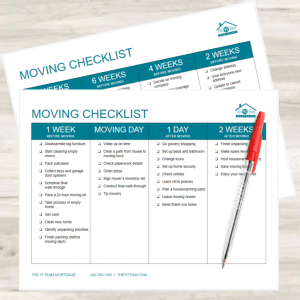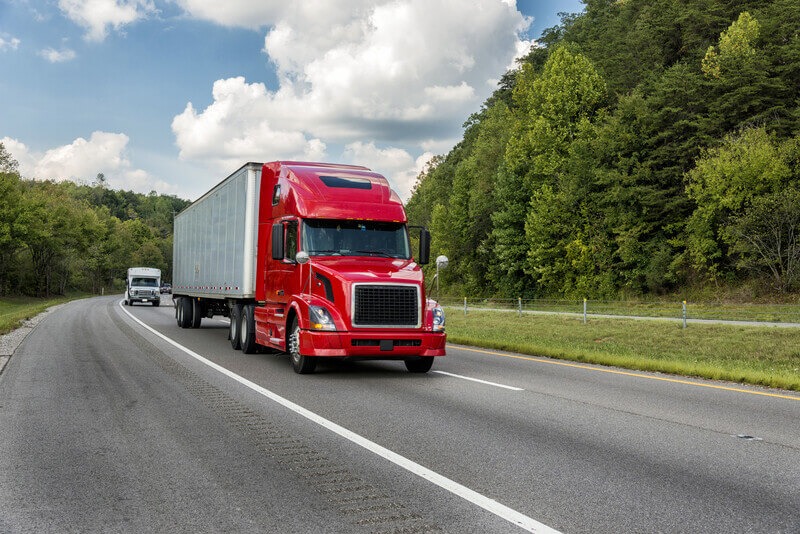Introduction

Ah, the adventure of moving long distances! It’s a journey that can be as exciting as it is daunting. But fear not, dear reader, for you are not alone in this quest. As an experienced Moving Consultant, I’m here to guide you through the labyrinth of choices and decisions you’ll face when considering how to hire long-distance mover. Imagine this guide as your trusty map, leading you to the treasure of a stress-free move.
The Importance of Choosing the Right Long-Distance Mover
Embarking on a long-distance relocation is akin to setting sail across vast oceans. The right moving company is your steadfast ship, ensuring your belongings reach their destination safely. Choosing poorly, however, can lead to turbulent seas and unforeseen troubles. This is why selecting the right mover is not just important; it’s essential.
Key Considerations When Hiring a Long-Distance Moving Company

Now, let’s dive into the heart of our journey: understanding the key considerations when hiring a long-distance mover. This process is more than just finding someone to transport your items; it’s about entrusting your cherished possessions to a team that values them as much as you do.
1. Research and Reputation:
- Start by delving into the moving company’s history. Look for reviews, testimonials, and their standing with organizations like the Better Business Bureau.
- Don’t forget to check their licensing and registration, especially their USDOT number, to ensure they’re legally permitted for interstate moves.
2. Services Offered:
- Long distance moving companies offer a variety of services. From packing and unpacking services to storage options, understand what you need and what they provide.
- Consider if you need full service movers who handle everything from packing to unpacking, or if you prefer a more DIY approach.
3. Cost and Estimates:

- Moving cost is a crucial factor. Ask for moving quotes and compare them. Remember, low prices can sometimes lead to compromised services.
- Understand the difference between binding moving quotes and non-binding estimates. A binding quote guarantees the cost based on the estimated weight of your belongings, while non-binding estimates can change.
4. Insurance and Liability:
- Inquire about the mover’s liability coverage and moving insurance options. This is crucial for protecting your belongings against damage or loss.
- Understand the levels of valuation coverage and choose one that gives you peace of mind.
5. Additional Fees and Contracts:
- Be wary of extra fees. Ask about charges for heavy lifting, moving heavy items, or accessing difficult locations.
- Scrutinize the moving contract. Look for clauses related to moving company liability limits, damage claims, and dispute resolution.
6. Planning and Communication:
- A successful long distance move requires meticulous planning. Discuss the moving checklist, moving day preparation, and scheduling with your mover.
- Evaluate the moving company’s communication style. Are they responsive, clear, and helpful? This reflects their overall service quality.
7. Avoiding Scams:
- Unfortunately, the moving industry isn’t immune to scams. Be vigilant about red flags like requests for large deposits or lack of a physical address.
- Verify their motor carrier safety administration compliance and check for any moving company complaint filings.
Understanding Your Moving Needs

Embarking on a long-distance move is like navigating a ship through uncharted waters. It requires understanding the nature of your cargo and the journey ahead. Let’s explore how to tailor your moving plan to your specific needs.
Assessing the Scale of Your Move (Small Apartment, Large House, Corporate Relocation)
Size Matters:
- For a small apartment, your focus might be on cost-effectiveness and efficiency. You might not need a large moving truck or extensive services.
- Moving a large house, however, involves more complexity. You’ll likely need full-service movers who can handle heavy lifting, packing, and potentially even storage solutions.
- Corporate relocations add another layer, often requiring specialized moving services that can handle sensitive equipment or documents.
Inventory Assessment:
Start by creating a detailed inventory of your belongings. This will not only help in getting an accurate moving estimate but also in assessing the need for special handling or packing materials.
Special Items:
Do you have items that require special care, like pianos or antiques? Ensure the moving company has the expertise and equipment to handle these.
Deciding Between DIY Moving and Professional Movers
DIY Moving Tips:
If you’re considering a DIY move, assess whether you have the time, skills, and resources. Renting a moving truck, gathering packing materials, and recruiting friends or family for help are key steps. Remember, while DIY might seem cheaper, it requires a lot of effort and coordination. Factor in the hidden costs like fuel, time, and potential rental equipment.
Professional Movers:
Hiring quality movers can alleviate much of the stress associated with long-distance moves. They bring expertise, efficiency, and the right equipment. When choosing professional movers, consider their reputation, moving company reviews, and the range of moving services they offer.
Importance of Early Planning for Long-Distance Moves
Timeline and Scheduling:
- Start planning as early as possible. Ideally, begin at least two to three months in advance. This gives you ample time to research moving companies, get quotes, and prepare for moving day.
- Remember, moving companies’ schedules can fill up quickly, especially during peak seasons.
Moving Checklist:

- Create a moving checklist. This should include tasks like updating your address, transferring utilities, and important moving day preparation steps.
- A checklist not only keeps you organized but also ensures you don’t overlook any crucial details in the hustle and bustle of moving.
Budget Planning:
Establish a budget early on. Consider all potential costs, including moving company fees, additional fees for services like packing and unpacking, valuation coverage, and any extra charges for heavy items or difficult access.
Communication with Movers:
- Once you’ve chosen a mover, maintain clear and consistent communication. Discuss all aspects of the move, from moving inventory process to the moving day schedule.
- Ensure you understand all moving contract details, including mover’s liability coverage, moving insurance options, and the claims process in case of damage.
Choosing the Right Moving Company
Ah, the quest to find the perfect moving company for your long-distance move! It’s like searching for a reliable companion for a grand journey. Let’s navigate through the steps to ensure you partner with the best possible moving company for your adventure.
Researching and Comparing Different Moving Companies
Gather a List:
- Start by compiling a list of potential moving companies. Think of it as casting a wide net to catch the best fish in the sea.
- Use online resources, ask friends for recommendations, and check local listings. The more options you have, the better your chances of finding the right fit.
Compare Services:
- Not all moving companies offer the same services. Some might excel in full-service moves, while others might be more suited for specific tasks like moving heavy items or providing packing materials.
- Make a comparison chart if it helps. List down the services each company offers and match them against your specific needs.
Get Multiple Quotes:
- Aim to get moving quotes from at least three companies. This will give you a fair idea of the moving cost spectrum.
- Remember, the cheapest option isn’t always the best. Balance cost with the quality of services offered.
Importance of Checking Company Credentials and Customer Reviews
Verify Credentials:
- Ensure the moving company is licensed, especially for interstate moves. Check their USDOT number with the Federal Motor Carrier Safety Administration.
- Look into their history of handling damage claims and their mover’s liability coverage. This speaks volumes about their professionalism and reliability.
Read Customer Reviews:
- Customer reviews are like the compass that guides you to the right decision. Look for reviews on independent websites and forums.
- Pay attention to how the company responds to both positive and negative reviews. This reflects their customer service approach.
Understanding the Significance of Experience in Long-Distance Moving
Years in Business:
- A company that has been in the business for many years is likely to have honed its skills in long-distance moving. They’re the seasoned sailors of the moving world.
- Experience often translates to better problem-solving skills, more efficient processes, and a deeper understanding of customer needs.
Specialization:
- Some companies specialize in long-distance or interstate moves. They’re familiar with the nuances, from moving truck logistics to navigating state regulations.
- Ask about their experience with moves similar to yours. Whether it’s a small apartment or a large corporate relocation, experience in similar tasks is invaluable.
Staff Training and Equipment:
A company’s investment in staff training and equipment is a testament to their commitment to quality service. Well-trained personnel and the right equipment make a significant difference in the safety and efficiency of your move.
Key Questions to Ask Before Hiring
As you embark on this journey to hire a long-distance mover, think of yourself as a detective, piecing together clues to uncover the best choice. Here are some key questions to guide your investigation.
Inquiring about Company’s Years in Business and Complaint History
Experience and Track Record:
- Ask about the number of years they’ve been in the moving business. Longevity can be a good indicator of experience and reliability.
- Inquire about their complaint history. How many have they had, and how were they resolved? This can shed light on their problem-solving abilities and customer service quality.
Understanding Insurance and Liability Coverage Options
Protection for Your Belongings:
- Delve into the details of their insurance and liability coverage. What does it cover, and what are the limits?
- Ask if they offer valuation coverage for your items and the difference in cost for varying levels of protection.
Clarifying Costs: Binding vs. Non-Binding Estimates
Understanding the Estimates:
- Clarify whether the moving quote they provide is binding or non-binding. Binding estimates guarantee the cost, while non-binding estimates can change based on actual weight and services.
- Discuss any potential extra fees or charges that might arise, such as for heavy lifting or difficult access.
Discussing Logistics: Packing, Unpacking, and Storage Services
Service Details:
- Inquire about the range of services they offer. Do they provide packing and unpacking services? What about storage solutions if needed?
- Ask about the packing materials used and if there are additional fees for them.
Preparing for the Move
Now, let’s focus on preparing for the big day. Think of this as laying the groundwork for a smooth and successful move.
Tips for Efficient Packing and Organization
Strategic Packing:
- Start packing early, focusing first on items you use less frequently.
- Label boxes clearly by room and contents. This not only helps with organization but also makes unpacking easier.
Checklist for Moving Supplies and Essentials
Essential Supplies:
- Gather all necessary packing materials: boxes, tape, bubble wrap, and markers. Don’t forget specialty containers for items like dishes or clothing.
- Prepare an essentials box with items you’ll need immediately upon arrival, like toiletries, a change of clothes, and basic kitchen items.
Understanding Restricted Items and Special Moving Requirements
Know the Restrictions:
- Ask the moving company about any non-allowables – items they won’t move. This typically includes hazardous materials, perishables, and personal items.
- If you have special moving requirements, like transporting a piano or artwork, discuss these in advance to ensure proper handling.
Cost Considerations
Embarking on a long-distance move is akin to setting sail on a grand voyage. It’s crucial to understand the financial waters you’ll be navigating. Let’s dive into the sea of cost considerations.
Breakdown of Potential Costs and Fees in Long-Distance Moving
Transportation Costs:
- The bulk of your expense will likely be the transportation cost. This is typically based on the distance of your move and the weight of your belongings.
- Remember, the further and heavier, the higher the cost.
Additional Services:
- Services like packing, unpacking, and storage will add to your bill. Each of these services is like an extra layer in your moving journey, providing convenience at a cost.
- Don’t forget to factor in costs for special handling of items like pianos or antiques.
Insurance and Liability Coverage:
Investing in additional insurance might increase your upfront costs, but it’s like having a safety net for your valuables.
Discussing the Average Cost of Long-Distance Moves
National Averages:
- While costs vary widely, national averages can provide a ballpark figure. For instance, a cross-country move for a one-bedroom apartment might cost differently than moving a four-bedroom house.
- Keep in mind these are just averages. Your actual cost may vary based on multiple factors.
Tips for Budgeting and Saving on Moving Costs
Get Multiple Quotes:
- Shop around and get quotes from several moving companies. It’s like casting multiple lines into the sea to catch the best deal.
- Be wary of quotes that seem too good to be true. They often are.
Timing Your Move:
If possible, move during off-peak times. Summer months, weekends, and the beginning and end of the month are usually more expensive. Consider a weekday or mid-month move for potential savings.
Moving Day Tips
The day of the move is like the day of a big performance. Everything you’ve planned and prepared for comes into play. Here’s how to ensure it goes smoothly.
Essential Steps to Ensure a Smooth Moving Day
Final Walkthrough:
- Before the movers arrive, do a final walkthrough of your home. Ensure nothing is left behind and that all items are packed and labeled.
- It’s like the final rehearsal before the main event.
Essential Bag:
Pack an essentials bag with items you’ll need immediate access to, like medications, important documents, and basic toiletries.
Roles and Responsibilities on the Day of the Move
Your Role:
- Be available to answer questions and give directions. Your movers might be the experts, but you’re the director of this operation.
- Keep important documents like contracts and inventory lists handy.
Movers’ Role:
The movers will handle the heavy lifting, loading, and transportation. Trust their expertise but don’t hesitate to voice concerns if you have any.
Safety and Security Considerations
Secure Your Home:
- Ensure that both your old and new homes are secure during the move. Lock up after the movers have loaded everything, and do the same at your new home.
- Keep your valuables and sensitive documents with you.
After the Move
Congratulations, you’ve navigated the high seas of moving! Now, it’s time to settle into your new harbor.
Unpacking and Settling into Your New Home
Unpack Systematically:
- Start with essentials and gradually move to less critical items. It’s like slowly unpacking your holiday suitcase, savoring the memories as you go.
- Organize as you unpack. It’s easier to find a place for everything when you’re putting it away for the first time.
Addressing Any Issues or Damages Post-Move
Inspect Your Belongings:
Check for any damages or missing items as you unpack. If you find issues, report them to the moving company immediately. Keep your inventory list and photos of valuable items handy for reference.
Finalizing Transactions and Payments with the Moving Company
Review the Final Bill:
- Ensure all charges are as discussed and that there are no unexpected fees.
- If you have any disputes, address them before making the final payment.
FAQs
Navigating the waters of long-distance moving can often feel like charting a course through uncharted territory. To guide you through this journey, let’s address some frequently asked questions.
How Much Does Hiring a Long-Distance Mover Typically Cost?
Varied Costs:
- The cost of hiring a long-distance mover can vary significantly. Factors like the distance of the move, the volume of your belongings, and additional services (like packing and storage) play a crucial role in determining the cost.
- As a rough estimate, moves can range from a few thousand dollars for smaller relocations to several thousand for larger or cross-country moves.
What is the Difference Between a Non-Binding and a Binding Estimate?
Non-Binding Estimate:
- This is an initial quote based on the estimated weight of your belongings. However, the final cost may change based on the actual weight.
- Think of it as an educated guess; it gives you a ballpark figure.
Binding Estimate:
- This is a fixed cost estimate. Regardless of the actual weight, the price won’t change unless you add services.
- It’s like locking in a price, providing a sense of financial security.
How Far in Advance Should I Book a Long-Distance Mover?
Ideal Timing:
- It’s recommended to book a mover at least 4-6 weeks in advance. During peak seasons, like summer, even earlier booking might be necessary.
- Early booking ensures you get your preferred date and can also sometimes secure better rates.
What Should I Do If My Belongings Are Damaged During the Move?
Immediate Action:
- Document the damage with photographs and notify the moving company as soon as possible.
- File a claim for damage. Remember, you have a limited time after the move to file this claim.
Can I Pack My Belongings Myself When Using a Long-Distance Mover?
Self-Packing Option:
- Yes, you can pack your belongings yourself. However, be aware that self-packed items might not be covered under the mover’s liability coverage for damages.
- Proper packing materials and techniques are crucial to protect your items.
Are There Any Items That Long-Distance Movers Will Not Transport?
Non-Allowables:
- Movers generally won’t transport hazardous materials, perishable foods, plants, and sometimes high-value items.
- It’s best to transport personal and valuable items like jewelry and important documents yourself.
Conclusion
Recap of the Key Points for Hiring a Long-Distance Mover
Understand Your Needs:
- Assess the scale of your move and decide between DIY and professional movers.
- Early planning is crucial for a smooth long-distance move.
Choose the Right Company:
- Research and compare moving companies, checking their credentials and customer reviews.
- Experience in long-distance moving is significant.
Cost and Logistics:
- Be clear about costs, estimates, and additional fees.
- Discuss all logistics, including packing, unpacking, and storage services.
The Importance of Choosing the Right Mover for a Stress-Free Experience
Selecting the right long-distance mover is like choosing a reliable compass for your journey. It can make the difference between a tumultuous voyage and a smooth sail. Remember, a successful move is not just about transporting items; it’s about moving your life from one chapter to the next with care and efficiency.





